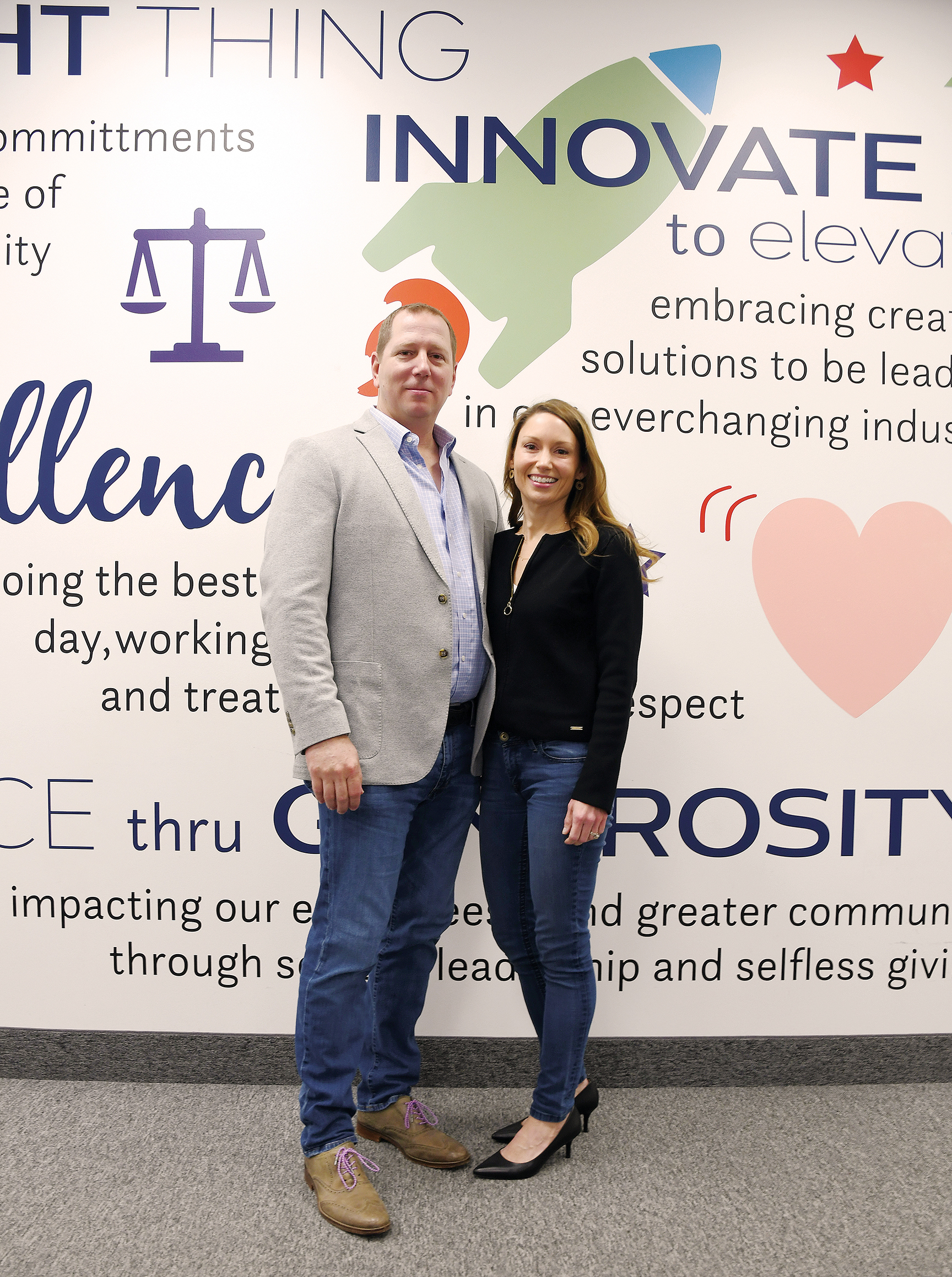Why We Give
The word “culture” comes up a lot when Chandler and Meredith Rose talk about their company and the growing group of professionals who work for them.
You either create that culture, or the culture creates itself.
In their 12-year relationship with Campbell University, the Roses have brought in several interns from the Lundy-Fetterman School of Business, and one thing they’ve noticed in that time is Campbell students — far more often than not — fit that culture they’ve worked so hard to create.
“Our Campbell interns this summer were asked to reorganize our storage room, and no one acted like it was beneath them,” says Meredith.

“They were proud of the work they did, and that’s the type of character we want. And the students we get from Campbell, this is repeated over and over and over again. And that’s something that speaks to me — I’m a chief marketing officer, and I’ve scrubbed toilets here. We work together as a team and do whatever it takes to get a job done.”
That team has built the ever-growing Rosewood Family of Companies, a conglomerate of organizations providing a full suite of construction, installation, project management and staffing services all over the country. Those companies include Cruxos, InDemand Services, Penmark Inspired Spaces and Southern Concepts Design Build and ProVantage Solutions — the latter offering services such as new store set-ups and existing store remodels and resets for some of the biggest companies in the U.S.
ProVantage was formed during the economic downturn in 2008 when the Roses acquired its predecessor out of bankruptcy. They’ve since transformed it to five operating companies and grown revenue by 1,600 percent. In 2021, Chandler was named among Triangle Business Journal’s CEO of the Year cohort.
From Day 1, Chandler and Meredith Rose have operated under five core values — “grace through generosity” chief among them. The Roses donate 20 percent of their earnings to various charities, nonprofit organizations, Christian organizations and local colleges and universities.
“The reason we do any of this is to multiply our blessings,” says Meredith, who serves as chief design and marketing officer. “We give to Campbell, but we also give to Wake Forest, Liberty, local Christian schools and K-12 schools. The reason we focus on education is because we want to help support that next generation of givers. So that maybe when they grow up, they can say, ‘I got a scholarship, and it made such a big difference in my life, and I want to be able to do the same for somebody else.’ Or it could take them to a level where they could not have gotten without that money. When something like that has been done for you, maybe it will motivate you to one day do the same.”
Chandler recalls a conversation he had with Edward Fubara, assistant dean of academic affairs and professor for the School of Business, and Fubara asked him a question from his Ethics in Business course — should companies be required to give back? Chandler said, “Absolutely not.”
“I’m a capitalist, but I’m also very much a believer that if you’re blessed, then Biblically, you should be tithing and giving back. And you should pass that down and set the example,” he says.
The Roses’ relationship with Campbell began not long after Matthew Epps (’09 MBA) was brought on as executive vice president for ProVantage in 2009 (today, he’s group president for the Rosewood Family of Companies). Epps was a few months away from earning his MBA at Campbell, and getting to know the University was a product of Chandler and Meredith’s desire to connect with their employees and support their interests. In 2011, Meredith was named to the School of Business’ Advisory Council, and this year, the Roses made a naming gift to support the school’s Peer Mentor Program, which couples experienced students with incoming students to help guide them through the rigors of higher education.
33%
Nearly a third of all incoming freshmen at Campbell University are first-generation college students, meaning they’re coming from a family whose parents did not earn a four-year degree. First-generation students historically have a more difficult time earning a degree in four years for a variety of reasons. Campbell’s Peer Mentor Program and First Year Experience are designed help first-gen students navigate those first few difficult years of their college experience.
“The people involved in the Peer Mentor Program are giving their time. They’re giving their influence,” Meredith says. “The influence they have and the time they spend with those kids — it’s just so generous that they’re doing that. And it’s so important to those students.”
“Tell me the best gift card you’ve ever received?” adds Chandler. “We’ve given financially, but who remembers a gift card? After a while, nobody. But you remember a gift that had some thought and effort. When you get outside of the financial giving, and you actually do something that touches someone or recognizes the struggles they’re facing — they’ll remember that. That gift will actually have some staying power.
“So it’s aspirational and hopeful that they get our scholarship and remember us. But I think if they get something from us that is more personal and touching — something that helps them develop — then maybe that’s something they’ll take with them for the rest of their life. To me, that has much better staying power.”
Next: Why We Give | Kafi Friday

